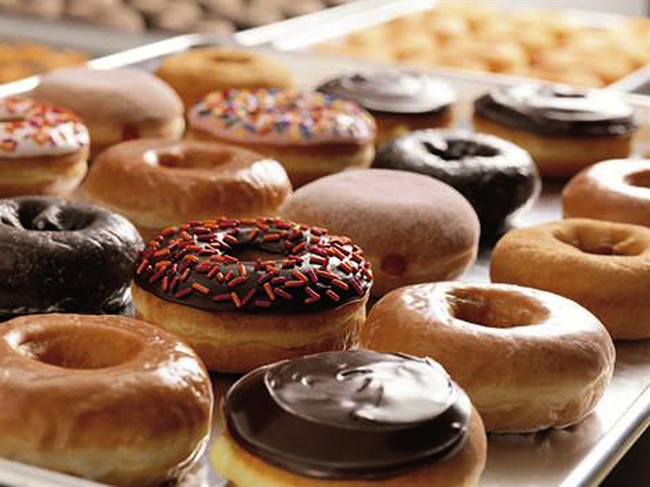Do you find yourself craving cookies, cheeseburgers and French fries after a sleepless night? Scientists have already said that sleep deprivation tampers with appetite, but now they’ve estimated just how many more calories we eat.

The day after a restless night, we end up eating about 385 extra calories, according to a new study out of King’s College London. That’s almost five slices of bread, the researchers note.
“Reduced sleep is one of the most common and potentially modifiable health risks in today’s society, in which chronic sleep loss is becoming more common,” Dr. Gerda Pot, the study’s lead author, said.
“The main cause of obesity is an imbalance between calorie intake and expenditure and this study adds to accumulating evidence that sleep deprivation could contribute to this imbalance. There may be some truth in saying ‘early to bed, early to rise, makes a man healthy and wise,’” Pot explained.
READ MORE: Here’s why your sleepless night is giving you the munchies
Pot’s team conducted a review of 11 studies on sleep deprivation and hunger to come to their findings. About 172 people between 18 and 50 – and of all weight groups – were included in the data they pulled. Some of them got a full night’s sleep, which is about seven hours right up to 12 nights of slumber. Others weren’t as lucky and got about 3.5 to 5.5 hours of sleep.
Turns out, the sleep-deprived group ate 385 calories more on average the next day. Keep in mind, because they were so exhausted, they also expended less energy and burnt fewer calories, too.
- ‘She gets to be 10’: Ontario child’s heart donated to girl the same age
- Bird flu risk to humans an ‘enormous concern,’ WHO says. Here’s what to know
- Shoppers faces proposed class action over claims company is ‘abusive’ to pharmacists
- ‘Bacterial vampirism’: Deadly pathogens attracted to human blood, study finds
The study also reported that the sleepy group ate more fat and less protein.
The researchers say adequate sleep should be a third factor for keeping a healthy weight, next to diet and exercise.
READ MORE: Here’s what you should be eating for a good night’s sleep, according to scientists
It’s hard to tell if long-term sleep loss would lead to weight gain, though. The review zeroed in on studies that lasted for only about two weeks.
So what is it about a sleepless night that makes us so hungry? Earlier this year, doctors out of the University of Chicago said that lack of sleep amplifies a chemical signal that makes us drawn to sweet, salty and high-fat food.
In that case, the scientists had 14 young, healthy volunteers lose out on sleep while having their meals doled out in the research centre.
READ MORE: Canadian doctor shares her tips for falling asleep and staying asleep
After a rough night where they only got about four hours of sleep compared to a full seven or eight, the volunteers couldn’t turn away from cookies, candy and chips even though they were fed a meal that supplied them with 90 per cent of their daily caloric needs two hours before.
The effects were strongest in the late afternoon and the early evening – when snacking has been tied to weight gain.
It’s a bit of a vicious cycle – sleep regulates our appetite because it balances out hormones.
READ MORE: Follow this one tip if you’re trying to lose weight, study suggests
If you aren’t sleeping well, your metabolism takes a hit, along with your eating routine.
Pot’s full findings were published this week in the European Journal of Clinical Nutrition.
carmen.chai@globalnews.ca
Follow @Carmen_Chai


Comments